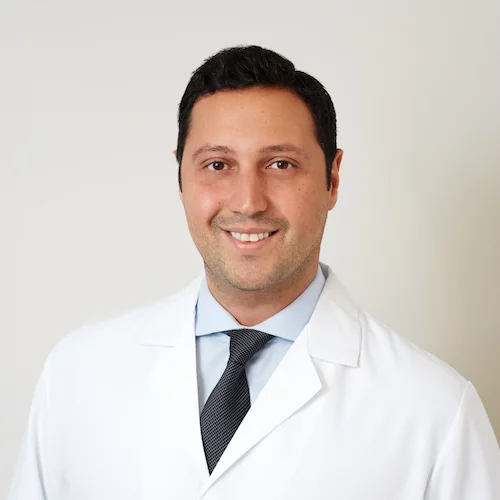High Cholesterol, also known as hyperlipidemia, can contribute to a variety of negative health conditions, including heart disease and stroke. Unfortunately, more than a third of Americans (71 million) have high cholesterol.
Cholesterol is a fatty substance that exists in your blood. Doctors separate cholesterol into “good” and “bad” types. When people say they have high cholesterol, they usually mean they have excessive amounts of low-density lipoprotein (LDL cholesterol) in their blood.
The Mayo Clinic identifies six common causes of high cholesterol. These conditions include poor diet, obesity, large waist circumference, lack of exercise, smoking, and diabetes.
Genetics can also play a key role in your cholesterol levels. If your family members have high cholesterol, then there is a good chance that you will, too.
Poor Diet
Eating a diet that’s high in saturated fat and trans fat can raise your cholesterol by adding fat to your blood. Some foods you should avoid include:

- Red meat
- Pork products
- Dairy products (especially full-fat dairy products)
- Fried foods
- Eggs
- Chicken
You can improve your diet by eating a wide range of fruits, vegetables, and whole grains.
Obesity
Obesity is defined as having a body mass index (BMI) of 30 or higher. You can calculate your BMI by dividing your weight by your height in inches squared and multiplying the result by 703. For instance, a 180-pound, 6-foot person’s BMI calculation would look like:
(180/(72 * 72)) * 703 = 24.41
If you haven’t done algebra in awhile, you can always use an online BMI calculator that will do the math for you. Just plug in your weight and height to get an accurate result.
Large Waist Circumference
Scientists have found a connection between large waist circumference and high cholesterol. Men with waist circumferences of 40 inches or more are at high risk. Women with waist circumferences of 35 inches or more likely have high cholesterol.
Unfortunately, high cholesterol doesn’t have any symptoms until it causes a heart attack, stroke or another cardiovascular event.
You can have your doctor perform a blood test that will reveal your cholesterol levels. Most cholesterol doctors check for cholesterol every four to six years. If you are at risk of having high cholesterol, though, your doctor may want to check it annually or even more often.
Lack of Exercise
When you exercise, your body creates more “good” cholesterol while minimizing the harm caused by “bad” cholesterol.
The American Heart Association recommends that people who want to lower their cholesterol get 40 minutes of moderate-to-vigorous aerobic activity at least three times a week.
Tobacco Use
Using tobacco damages your blood vessel walls, which makes it easier for them to collect fatty cholesterol. Some research indicates that smoking can also lower your “good” cholesterol levels.
Diabetes
Diabetes encourages the body to make more “bad” cholesterol and less “good” cholesterol. High blood sugar can also damage your arteries.
There are two types of cholesterol testing:
The first is called a complete cholesterol test also called a lipid profile test, that tests for the amount of cholesterol and triglycerides in your blood. A complete cholesterol test includes the calculation of four types of fats (lipids) in your blood.
The second is called an NMR or nuclear magnetic resonance spectroscopy. The NMR test is an advanced cardiovascular diagnostic test that uses nuclear magnetic resonance (NMR) spectroscopy to provide rapid, simultaneous and direct measurement of LDL particle number and size of LDL particles, and also direct measurement of HDL and VLDL subclasses. This detailed lipoprotein particle information allows health professionals to make more effective individualized treatment decisions than previously possible based on standard lipid panel testing.
Although the NMR is a more detailed test it is also more expensive, takes more time to result and is not always needed to assess cardiovascular risk. Depending on your risk factors your cardiologist or internist will determine which test is indicated and best to assess your overall cardiovascular risk.
Making changes to your lifestyle may significantly improve your cholesterol levels. People with high cholesterol can often make improvements by:
- Exercising more often
- Quitting tobacco products
- Eating heart-healthy diets
- Losing weight
If lifestyle changes don’t lower your cholesterol, then you may need to take a cholesterol-lowering medication. Most patients with high cholesterol take statins such as:
- Lipitor (Atorvastatin)
- Lescol (Fluvastatin)
- Mevacor (Lovastatin)
Statins work by telling your liver to produce less cholesterol. When your liver doesn’t make as much cholesterol, you will have lower levels in your blood. For personalized high cholesterol treatments, consulting a cholesterol specialist can help tailor a plan that works best for you.
High cholesterol is closely related to your diet and exercise habits, and there are a number of lifestyle factors you can control to minimize your risk. Losing weight may help, but everyone should focus on making sure to eat as healthy as possible, avoiding red meat and trans fats. For a healthier meat option, doctors recommend a couple weekly servings of fatty fish like tuna and salmon, which boost healthy cholesterol. Try to get enough exercise as well. You don’t have to be a hard-training athlete – just a couple hours of moderate exercise each week can make a major difference.
If left unchecked over time, high cholesterol can result in plaque build-up that causes atherosclerosis, or narrowing of the arteries. This limits blood flow, forcing the heart to work harder to pump blood to the rest of the body and increasing your risk of blood clots. Obstructions in the blood vessels significantly increase your risk of medical issues such as heart attacks, strokes, and hypertension, all of which can be potentially life-threatening.




